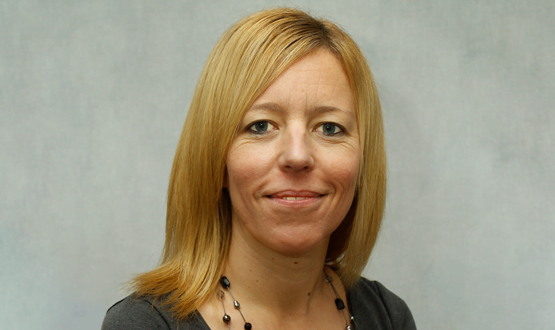Lisa Emery asks: what next for the NHS CIO?

On the Rewired 2021 blog Lisa Emery, CIO at the Royal Marsden NHS Foundation Trust looks back on her personal journey as an NHS CIO , highlighting how peer support, networks communities and the emergence of formal qualifications have helped developed the leadership role.
The role of Chief Information Officer within the the NHS has undoubtedly evolved over time, and there is still a great deal of variation in terms of portfolios, reporting lines, job titles and board membership. As recognition rightly grows in terms of the pivotal role of technology and data in all aspects of healthcare, digital leadership skills are needed more than ever, it is critical that we create a compelling path for the wealth of future leaders we will undoubtedly need.
I’ve found myself lately having a lot more conversations about the role of the CIO and what the future will bring. It’s a topic that lights up digital networks and social media feeds. There’s real pride in where we have come from and a sense of responsibility to influence change.
Being a trust’s first CIO
I took on my (and also the organisation’s) first role as a CIO in 2014 at West Herts NHS Trust. I reported into the CEO, and we worked together to shape the requirements and get to grips with what we wanted from the portfolio. It’s fair to say that it was a learning curve both personally and for the organisation – and a steep one at that. A shared commitment to the transformational potential of technology and a supportive executive team kept us on the right path.
I grew into the role, learning an incredible amount about the operational running of an acute trust, and getting a real perspective on the perception, benefits and limitations of technology for patients and front-line staff.
In professional terms, whilst the ability to ‘build your own’ portfolio was in some ways a real luxury, I know I would really have benefitted from more structured training and support. I was lucky enough to to be invited into networks such as Digital Health, and regional CIO groups, which turned out to be absolutely vital in terms of access to experienced peers, who were incredibly generous with their time and knowledge. I was unaware at that point of any options open to gain professional recognition for myself and colleagues, but there was some comfort in knowing that I was not on my own.
Strengthening networks and sharing knowledge
By the time I took on my current role in 2018, I had built up a network of peers, from incredibly diverse career backgrounds. As I strengthened my networks and shared knowledge, I found myself increasingly looking to influence recognition and support not only for those of us in current roles, but to help light a clear career path for future digital leaders. There have been some incredible trailblazers in the digital community, undertaking detailed research, supporting education and training, and leading by example.
As a result, great strides have been made, with the Digital Academy, CHIME International CIO cohorts and the work of BCS, to name a few. It is a real joy when asked ‘so how does someone become a CIO?’ to now be able to offer tangible advice and point to such high-quality resources.
Digital leadership sessions at Rewired
The Leadership Summit and other sessions at Rewired have some great content on digital leadership again this year. It does feel that the discussion is really moving on from the rather binary ‘should the CIO be on the board?’ question to recognition that digital literacy for all board members is essential, and that the CIO and their digital leadership colleagues need to be formally recognised, developed and supported to operate authoritatively and effectively at this level as vital members of the executive team.
Get your ticket for Digital Health Rewired 2021 to join the must-attend virtual festival celebrating the best of digital health and care, taking place across 15-19 March 2021.



